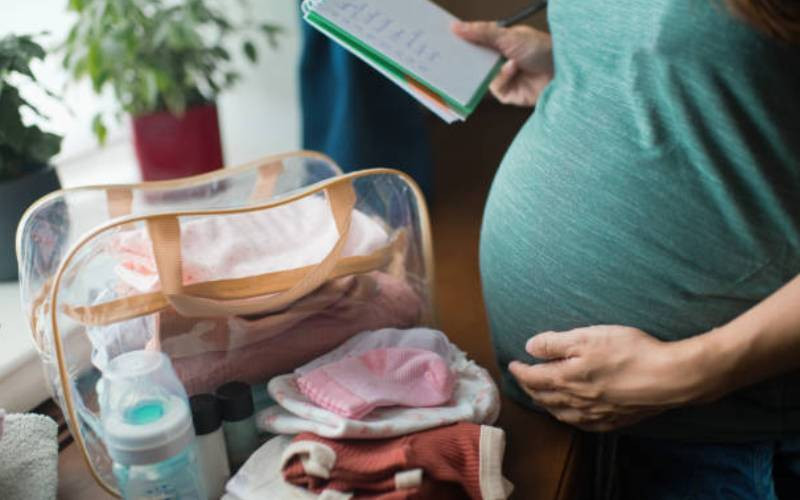
1. How do my breasts change?
Your breasts begin to gear up for feeding your baby as soon as you're pregnant.
Having tingling nipples and tender, swollen breasts is one of the first signs of pregnancy. It's caused by hormones surging through your body.
The skin around your nipples (areolas) may also appear darker, and have tiny bumps. This is nature's visual way of directing your baby towards her feed.
It smells like amniotic fluid, so your baby will instinctively move towards this familiar smell soon after birth.
2. How DO breasts make milk?
Alveoli: where breastmilk is made. These clusters of small grape-like sacs in your breast are surrounded by tiny muscles that squeeze them to push milk out into the ductule. They develop during each pregnancy.
Ductules: small canals that carry milk from the alveoli to the main milk ducts.
Milk ducts: the intricate network of canals that carries milk from the alveoli and ductules straight to your baby. These ducts increase in size and number during each pregnancy.
Prolactin: this hormone signals your body to make lots of milk to nourish your baby after it's born.
3. Feeding for the first time
The first milk you'll feed your baby is colostrum, which is a concentrated, creamy-looking, high-protein, low-fat substance. This is all your baby needs in their first three days of her life.
Colostrum is easily-digestible and full of disease-fighting antibodies (immunoglobulins) that strengthen your baby's immune system.
Your actual milk will come in about three days after you've given birth. This is when the levels of prolactin have adjusted and you produce breastmilk, rather than colostrum.
4. What happens to me when I feed my baby?
As your milk flow increases during letdown, you may also feel some tingling, stinging, burning or prickling in your breasts. This is normal, and the sensation passes in a few moments.
You may find that your milk drips or even sprays as it comes down.
If you have painful, engorged breasts during the first few days, feeding your baby often will help.
This moves the milk through your breasts, which will help to avoid the milk staying in one of the ducts too long and causing infection.
 The Standard Group Plc is a multi-media organization with investments in media platforms spanning newspaper print
operations, television, radio broadcasting, digital and online services. The Standard Group is recognized as a
leading multi-media house in Kenya with a key influence in matters of national and international interest.
The Standard Group Plc is a multi-media organization with investments in media platforms spanning newspaper print
operations, television, radio broadcasting, digital and online services. The Standard Group is recognized as a
leading multi-media house in Kenya with a key influence in matters of national and international interest.






